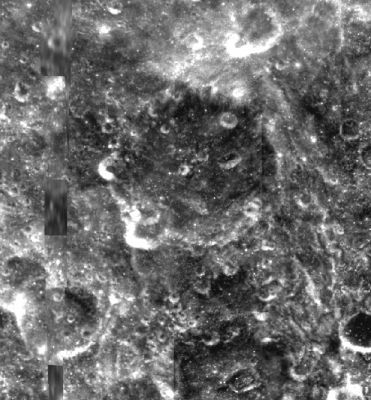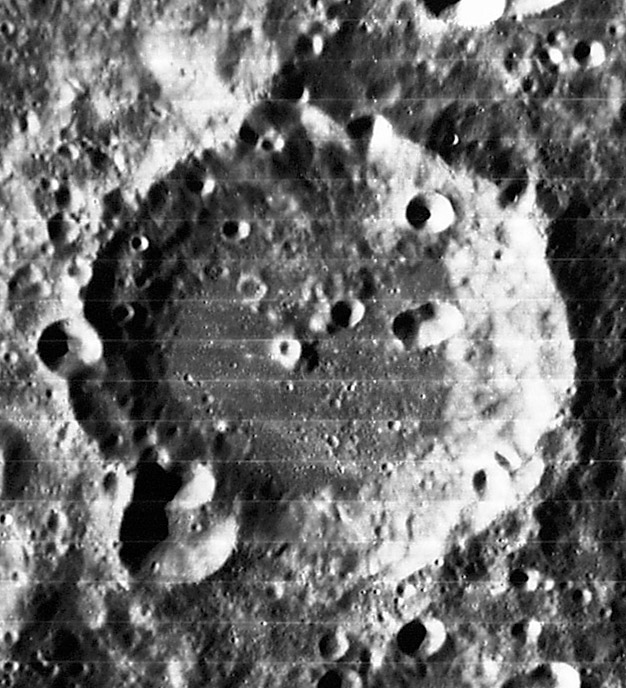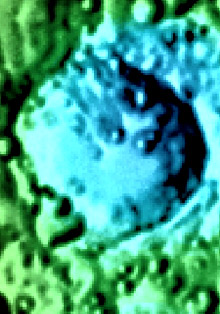Cyrano
Contents
Cyrano
| Lat: 20.5°S, Long: 157.7°E, Diam: 80 km, Depth: km, Rükl: (farside), pre-Nectarian | ||
Images
LPOD Photo Gallery Lunar Orbiter Images Apollo Images
Maps
Description
Cyrano could be seen to lie within the confluence of three main impact events that of: the 2500 kilometre-wide South-Pole Aitken Basin to its south-east; the 500 kilometre-wide Keeler-Heaviside Basin to its north-east; and the 265 kilometre-wide Gagarin crater to its west -- all pre-Nectarian (~ 4.6 to 3.92 bn years) in age. Cyrano is of the same age also and, by all accounts -- with its relatively sharp-looking rim (that is, in those parts that have survived subsequent crater impacts), its worn terraces, and a flat floor showing only small hilly signs of a central peak -- the crater must be of a younger age within the above-mentioned period. The crater itself, however, has seen the impact wars; the north and western sides suffering most where several major impacts have obilterated the rim, its terracing, and deposited material onto the floor -- covering, perhaps, a history of events now lost forever. - JohnMoore2
Description: Wikipedia
Additional Information
Nomenclature
- Cyrano De Bergerac Savinien; French writer (1615-1655).
- The crater name Cyrano was in the first large list of farside feature names approved by the IAU in 1970. Cyrano (the person) is one of the very few creative writers to be honored on the Moon. The citation in Menzel, 1971 mentions his writing of "imaginary visits to Moon and Sun", in particular his Comical History of the States and Empires of the Moon and ... of the Sun. At the time this name was introduced, the IAU was toying with the idea of honoring many other writers, artists and musicians. That proposal was formally adopted in 1973, but almost immediately squashed in 1974/1976. No other writers were or will be added. - JimMosher
- De Bergerac (Cyrano De Bergerac) was once an unofficial name for nearside crater Carlini D (H.P.Wilkins and P.Moore, The Moon).
LPOD Articles
Bibliography
Cyrano De Bergerac in the Sourcebook Project (William R. Corliss)
- In Mysterious Universe, a handbook of astronomical anomalies (1979) :
- Page 425: The Moons of Mars (Roscoe Lamont, Popular Astronomy, 1925). Note: this is a very interesting article about possible pre-1877 observations of the two satellites of Mars (Phobos and Deimos).


